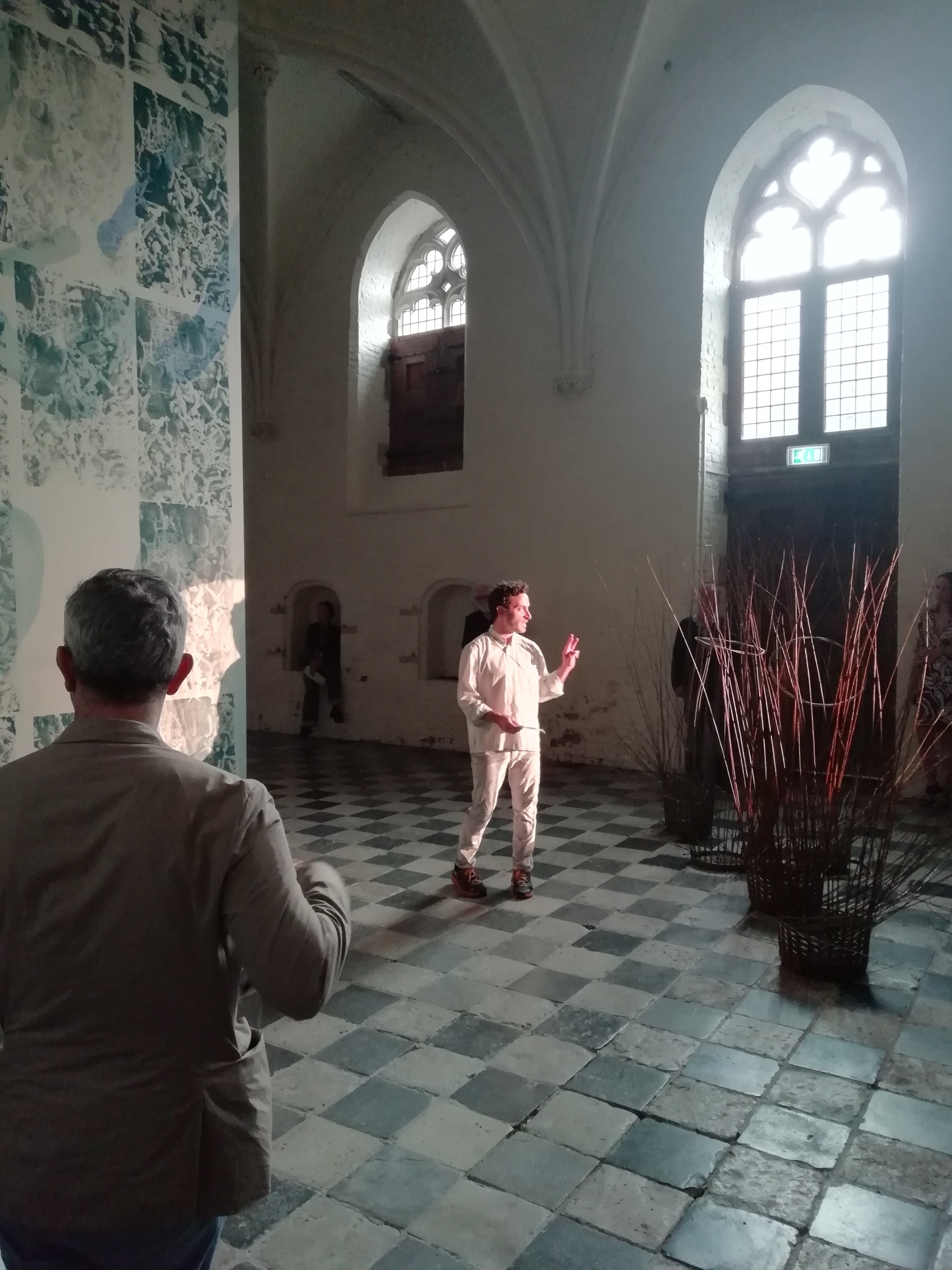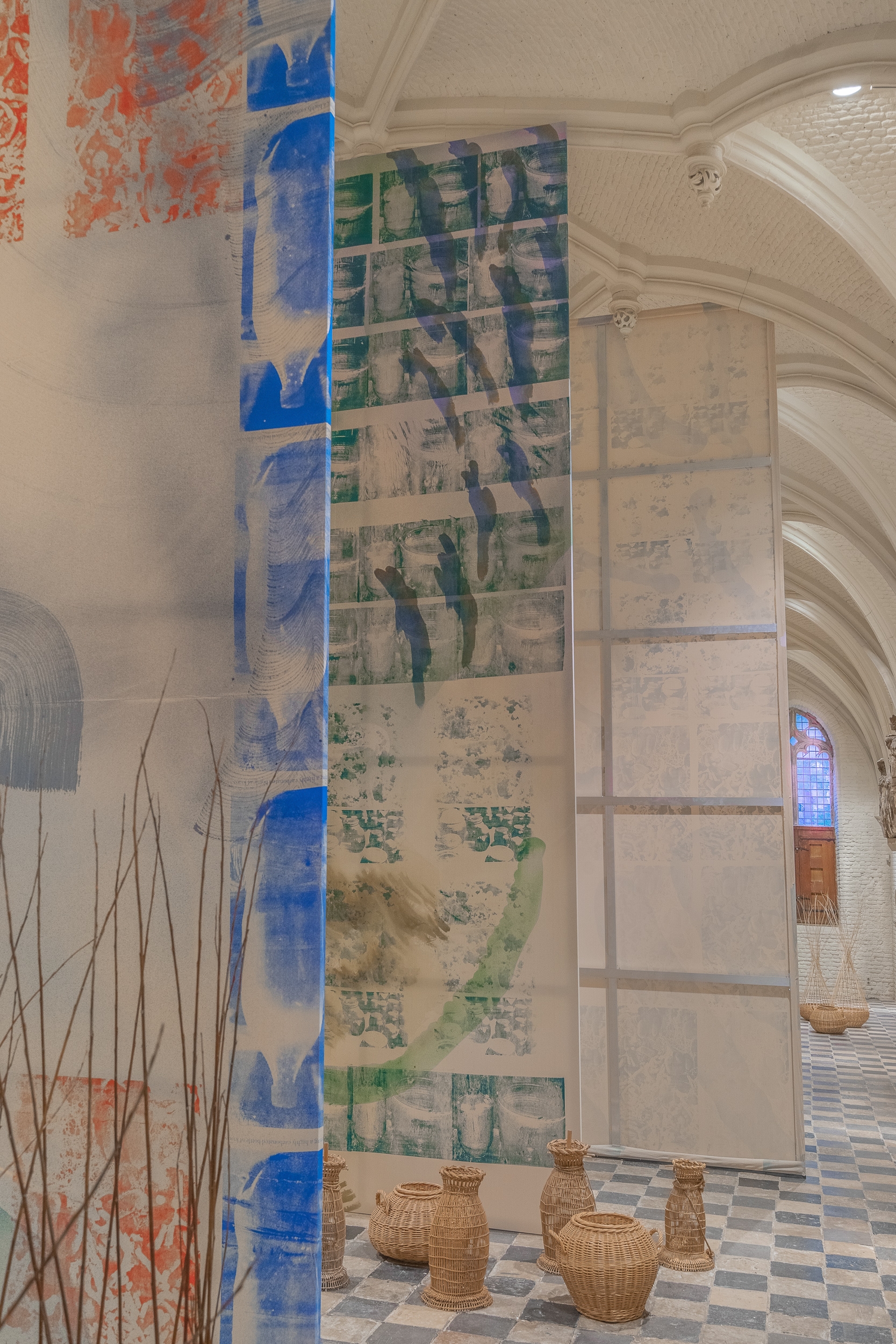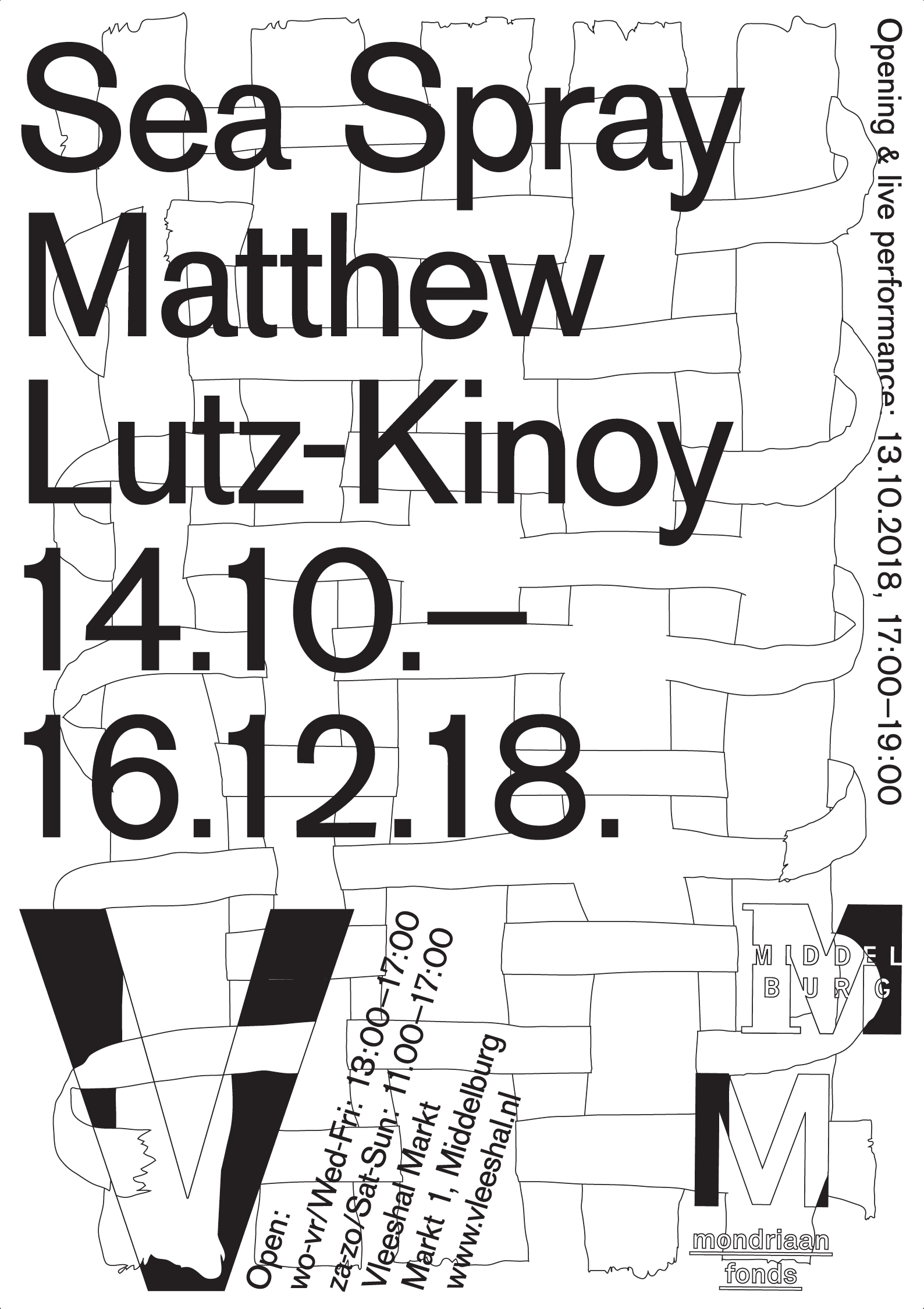Sea Spray
Matthew Lutz-Kinoy
Solo exhibition
14 October – 16 December 2018
Vleeshal (Map)
Curator: Roos Gortzak
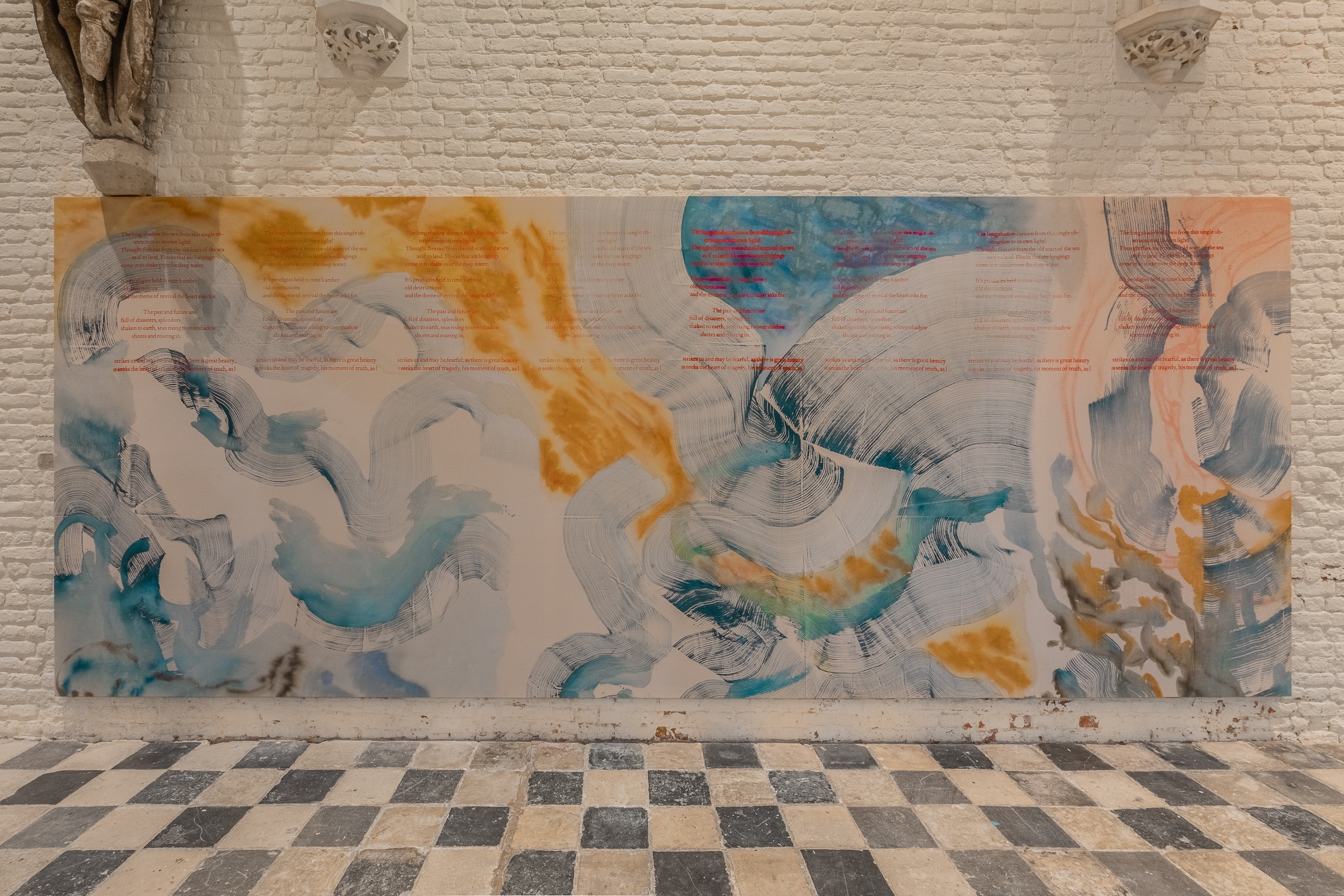
The past and future are
full of disasters, splendors
shaken to earth, seas rising to overshadow
shores and roaring in.
These lines are lifted from Robert Duncan’s poem Atlantis and figure in the series of large-scale paintings that Matthew Lutz-Kinoy developed for his solo show Sea Spray at Vleeshal. A repurposed market in the Gothic town hall of Middelburg, Vleeshal moved from trading meat to displaying contemporary art. Depicted in a 19th century painting, the meat market is represented in full business, with carcasses hanging from hooks on the ceiling and baskets abound, carried by shoppers, spread over the floor and temporarily placed on tables.
The narrative of the vessel, as it is built in relation to the human body, is an insisting recurrence in Lutz-Kinoy’s work, a multifaceted practice, vacillating from painting to poetry, theatre performance to ceramics. In his solo show at Vleeshal the vessel appeared in different disguises; as a silkscreened photo of a bottle; as fishing baskets to catch and contain eel, as mortuary stretchers made from willow trees. The paintings themselves acted as porous vessels too; containers for collages of texts and images that shine through recto-verso, as the canvas is raw and untreated. This enabled a flow of forms, where the movement of waves of one painting meet the structural grid of another. It’s a freeing of supposedly fixed forms, where text can become texture and image can become language.
In Food for Fire, Food for Thought, Duncan describes what he wants for the last poem: "a loosening of conventions and return to open form". Lutz-Kinoy’s overall environment for Vleeshal, consisting of soft expressionist paintings and wicker baskets in different stages of becoming, exposed precisely that. The artist described his show at Vleeshal as "an oversized, unbound book of poems. The pages act as expansive canvases that host painting, photographs and texts. These cotton nets catch and release printed passages, mirrored onto the canvas surfaces".
One departure point for these new works was Lutz-Kinoy’s ongoing interest in celebrating local food traditions, craft and collaboration, through which Sandor Ellix Katz’s book The Art of Fermentation comes into play. In the foreword, Michael Pollan addresses the poignancy of fermentation "and why an act as quotidian and practical as making your own sauerkraut represents nothing less than a way of engaging with the world. Or rather, with different worlds, each nested inside the other: the invisible world of fungi and bacteria; the community in which you live; and the industrial food system that is undermining the health of our bodies and the land".
Following this holistic and neurotic logic, we can address the influence of the food we consume, acknowledging the strength of the bacteria inside of us, which dictate our desires and behavior counter to the rational mind. Many of the images that are silkscreened onto the series of paintings Lutz-Kinoy made for this exhibition came from Katz’s book. Bacteria are flourishing; seaweeds, drinks and food fermenting on these colorfully stained canvases.
Inside the former meat market, visitors could think of the relation between the world’s carnivorous appetite and the disasters of our changing climate. And inside of the exhibition, visitors could locate and position themselves, as large as a person and as small as a bursting sea spray particle.
This exhibition was curated by Roos Gortzak, Vleeshal’s director. In 2013, she curated Keramikos by Matthew Lutz-Kinoy and Natsuko Uchino at Kunsthalle Baden-Baden. In 2015, Matthew Lutz-Kinoy participated in the group show University’ by the Oceans Academy of Art at Vleeshal Zusterstraat. Sea Spray is Lutz-Kinoy’s first institutional solo show in the Netherlands. The official opening was accompanied by a performance by the artist.
Commissions
Behind the scenes
Video: Bram van der Giessen
The baskets in this exhibition were made possible through a generous collaboration with Jan de Vos en José Schilder from Mandenmakerij De Mythe.
This project was made possible by the generous support the Mondriaan Fund and the municipality of Middelburg.
